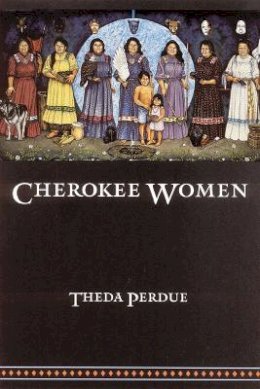
Stock image for illustration purposes only - book cover, edition or condition may vary.
Cherokee Women: Gender and Culture Change, 1700-1835
Theda Perdue
€ 18.99
€ 18.73
FREE Delivery in Ireland
Description for Cherokee Women: Gender and Culture Change, 1700-1835
paperback. Examines the roles and responsibilities of Cherokee women during the eighteenth and nineteenth centuries, a time of intense cultural change. This book develops a complex view of the effects of contact on Native gender relations, arguing that Cherokee conceptions of gender persisted long after contact. Series: Indians of the Southeast. Num Pages: 254 pages, black & white illustrations. BIC Classification: 1KBB; HBTB; JFSJ1. Category: (P) Professional & Vocational. Dimension: 5817 x 3887 x 15. Weight in Grams: 372.
“An interesting and effective overview. . . . It is to the author’s considerable credit that she is able to re-create the values and behavior of Cherokee women through court records, myths, and observers’ accounts. By examining women’s roles in farming and community life, Perdue argues that women were coequal contributors to Cherokee culture.”—Choice
Theda Perdue examines the roles and responsibilities of Cherokee women during the eighteenth and nineteenth centuries, a time of intense cultural change. While building on the research of earlier historians, she develops a uniquely complex view of the effects of contact on Native gender relations, arguing that ... Read more
Show LessProduct Details
Format
Paperback
Publication date
1999
Publisher
University of Nebraska Press United States
Number of pages
254
Condition
New
Series
Indians of the Southeast
Number of Pages
254
Place of Publication
Nebraska, United States
ISBN
9780803287600
SKU
V9780803287600
Shipping Time
Usually ships in 7 to 11 working days
Ref
99-1
About Theda Perdue
Theda Perdue is a professor of history at the University of North Carolina, Chapel Hill. Her works include Slavery and the Evolution of Cherokee Society, 1540–1866 and Native Carolinians: The Indians of North Carolina.
Reviews for Cherokee Women: Gender and Culture Change, 1700-1835
“A fascinating book that truly breaks new ground in the study of Cherokee history, women's history, and American history in general. Exemplifies women's history at its best. She neither concentrates only on so-called notable women—those Cherokee women who are supposedly worthy of historical study because they acted like white men—or on inserting Cherokee women into an already existing narrative of ... Read more
